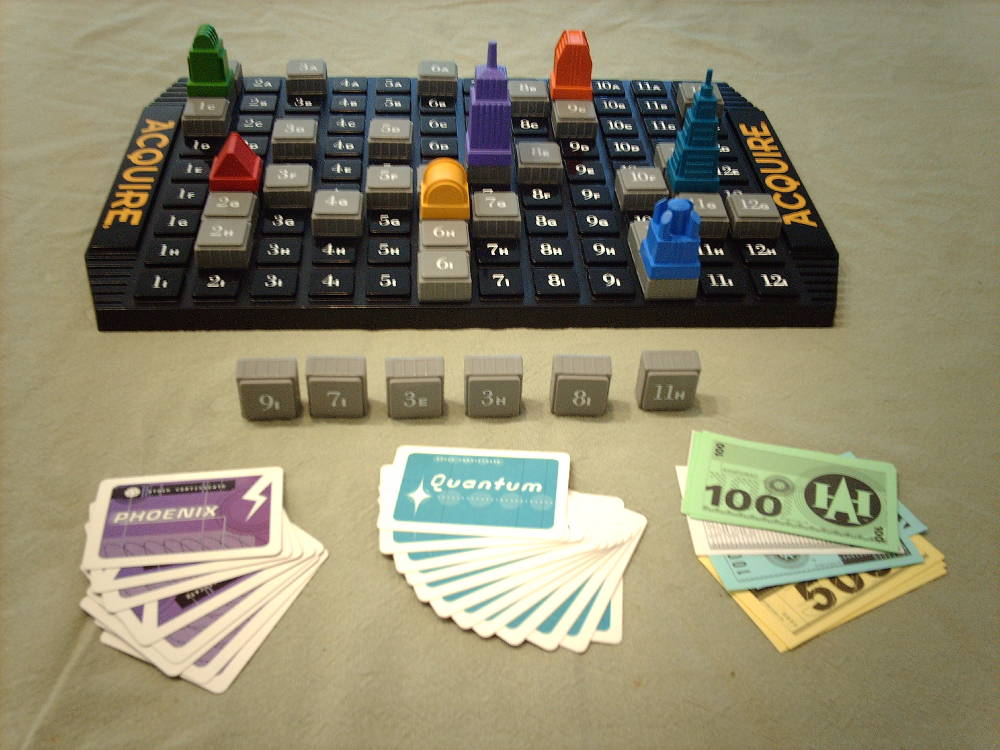[Photograph by Chunky Rice under Creative Commons]
It’s all about execution, they say. And that’s truer nowhere else than in the consumer internet business. Multiple firms attack the market with the same idea. Some get lucky with timing, follow up with great execution and attract disproportionate capital to distort market dynamics in their favour. That’s how the winners are decided.
So no matter how sound an idea may be or how rational a decision may appear, what really matters are these.
- How well were things executed?
- Was a seamless customer experience delivered?
- Did the customer feel delighted?
- From the vendor’s standpoint, was the transaction economically viable and sustainable in the long run?
Consider Flipkart’s $70 million in cash to acquire Jabong. Everybody talks of how Flipkart “pipped its rivals”. But if you step back and think about it for a moment, players were negotiating to buy a haemorrhaging asset at the lowest possible price and best terms.
Everybody who bid for Jabong would have tried to minimise their bids. For instance, offer a combination of stock and cash, or deferred stock, or alternatively ask for several indemnities and warranties on the state of the business which kick in post the deal (unfortunately, this fine print never makes it to the news and everyone touts the big headline valuation number). Presumably, Flipkart has negotiated these protections even in the all-cash deal that Jabong accepted.
This acquisition can play out in several ways:
The Optimistic Scenario: Competitive Intensity Lowers, Good Execution
At worst, Flipkart would have knocked out a competitor in Jabong which would have been dangerous in the hands of Snapdeal; for that matter even in the hands of an offline major like the Future Group or Aditya Birla Group, both of whom were in the reckoning—if they had gotten their hands on it at $70 million. This allows Myntra, a Flipkart group company, the breathing room to build an even larger lead, with Jabong being assimilated in some form as a brand within Myntra.
At best, Flipkart can craft distinctive positions for Myntra and Jabong, fuel both businesses to sustainability and build a position as the largest online apparel destination with commanding market share.
The Pessimistic Scenario: Competitive Intensity Doesn’t Wane, Poor Execution
In this scenario, Flipkart could burn anywhere between $120 million and $130 million on this acquisition. Which includes the cost of acquiring Jabong and attempting the turnaround (Jabong burns about Rs 250 crore per annum, Myntra about thrice that—give or take a few million dollars!) but fails to master the costs and complexities involved in running two online destinations with independent overheads and customer acquisition costs. (Actually, make that three destinations—since apparel is a large category for Flipkart too.) Supporting multiple independent entities could be unsustainable because of heavy customer acquisition and retention costs and it could discover that it has opened up two fronts on which it can potentially bleed.
In this scenario, Jabong can well turn out to be a distraction Flipkart cannot afford to have at this point—and it may come to the conclusion that integrating the business back into Myntra is its best bet.
It’s too early to declare a winner in the online apparel game. India is not a market Alibaba or Amazon will leave uncontested. And this move, I suspect, will unleash a new war. The team at Flipkart has its work cut out once it moves beyond the euphoria that has surrounded this announcement and begins to grapple with the real task of turning around Jabong. It is a wait and watch on how things play out on this front.
The Bigger Battle
What Flipkart has on hand right now is a bigger battle actually. As serendipity would have it, Amazon unleashed Amazon Prime in India with no-price-cap free delivery in over a 100 cities on the same day that Flipkart announced its acquisition of Jabong.
Amazon Prime has been a killer app for Amazon in the US and a few other markets. Though it remains to be seen how Prime will fare in India, until now this is the Howitzer missile Amazon has used to move its customers beyond electronics and gadgets to make buying on Amazon a daily habit.
And that elusive habit is what Flipkart needs to be wary of. That is the Holy Grail. Not selling more phones or gadgets. How to become an invisible part of its consumer’s lives, where they simply order daily use stuff online without thinking too much about it or wondering if they have to search for a coupon or an offer for it.
Amazon has been laser-focused on this habit creation and Prime, Echo and same day delivery are initiatives that are all driven towards making it a default and invisible choice for the consumer. Once this happens, the Prime phenomenon has shown that Amazon is able to shift consumers from deal seeking to buying on account of the sheer convenience of online shopping.
Since the time I wrote Saving Private Flipkart, we’ve seen Flipkart make several bold moves. It cleaned its management decks, shut down side initiatives like Ping and Nearby, brought focus back to the desktop and mobile web, discarded its obsession with gross merchandise value as the singular driving metric, announced a multimillion dollar push on mobile payments, launched “pay later” and other financing options for consumers.
I had talked about some more initiatives in my article—the key among them was the idea that Flipkart needs to bring customer experience front and centre and it has to win back the trust and loyalty of consumers who shifted away over the last couple of years as the company diluted its early mover advantage by focusing on growth via discounts and deals.
Now, Amazon Prime may not make a big noise and dent today. But it can be a silent killer which lulls Indian consumers into making Amazon a habit. Amazon has already started putting together content for Prime Video (an audio/video streaming service akin to Netflix that it bundles along with free delivery in Amazon Prime). The immediate impact of Prime Video given the state of our broadband infrastructure will be limited—but you never know if it conjures up a blockbuster series on the platform in partnership with a TV channel.
Flipkart has to come up with a credible alternative to Prime if it wants to fight the habit war. Selling more television sets is not habit forming. People will shop for the lowest price before they pick up their 42-inch screens and they buy one such set perhaps in three years at most.
What we’re witnessing is an enormous reset that’s going on across the entire e-commerce market. Players have been forced to stop discount-fuelled customer acquisition sprees and are now finding out where business stands after they’ve turned these taps off.
Proverbially, some had fooled themselves into believing they were wearing clothes and now that the tide is going out, discovering they actually aren’t. The pecking order has changed over the last few months.
I have said this earlier—that public announcements and data from the e-commerce companies is designed to confuse. Recent shipments show that over the last two months, Amazon is virtually neck and neck (or even a little ahead) in shipments per day versus Flipkart. Snapdeal and others have fallen even further behind.
Mid-tier and vertical e-commerce players (the likes of Pepperfry, Limeroad and others) are facing bigger existential challenges since their volumes have dropped off, but costs haven’t. And their traffic is plummeting. They are facing the prospect of running out of runway soon. On the other side of the table, investors are cagey and the ones with deep pockets are dragging deals since they know that the pickings will get cheaper as time passes. The Chinese trio—Alibaba, Tencent and Baidu—are biding their time, as they wait to get some more visibility on which team navigates this downturn. They will enter the fray once some of our players have cleaned up their overheads, written off their inventories and sharpened their businesses—and that will give any strategic investor more visibility on who could be a winner—and the bets will appear a lot safer.


